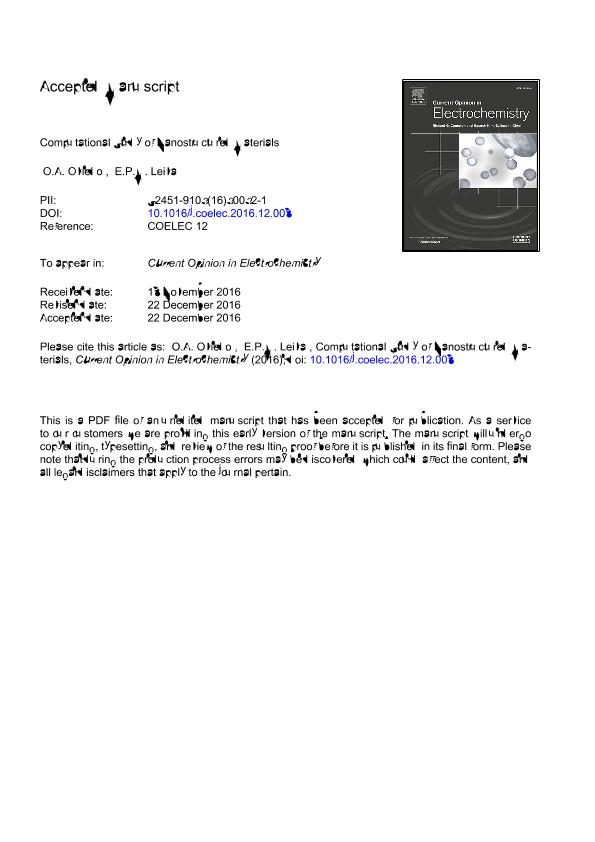Artículo
Computational study of nanostructured materials
Fecha de publicación:
02/2017
Editorial:
Elsevier B.V.
Revista:
Current Opinion in Electrochemistry
ISSN:
2451-9111
Idioma:
Inglés
Tipo de recurso:
Artículo publicado
Clasificación temática:
Resumen
Since their early times, by the 1950s, computational software and hardware have been growing in importance, to become today one of the key tools for the development and generation of knowledge. Increased computing power has radically transformed the way we make nowadays research. Today, it is possible to perform complex computational experiments with high quality and accuracy for model systems that are similar to those studied experimentally. This starts to be reality both considering sizes and timescales, and in many cases this is strictly true at the nanoscale. The global trend shows a significant increase in the interrelationship between groups of theoretical and experimental research. Addressing the problem from a combined perspective (theory, simulations, and experiments) is becoming a rule in high impact publications and although a lot is still to be done, this synergy shows huge advantages. This is so because this new perspective allows greater deepening in the understanding of the basic aspects of the systems at the atomic or molecular level. A comprehensive review on computer simulations applied to underpotential deposition (UPD) at the nanoscale, of interest for materials scientists, has been presented very recently [1••]. Here, we discuss some challenging theoretical and computational achievements in systems of electrochemical interest at the nanoscale, providing a close correlation with experiments.
Palabras clave:
Nanoelectrodeposition
,
Advanced Simulations
,
Dft
,
Energy Storage
Archivos asociados
Licencia
Identificadores
Colecciones
Articulos(INFIQC)
Articulos de INST.DE INVESTIGACIONES EN FISICO- QUIMICA DE CORDOBA
Articulos de INST.DE INVESTIGACIONES EN FISICO- QUIMICA DE CORDOBA
Citación
Oviedo, Oscar Alejandro; Leiva, Ezequiel Pedro M.; Computational study of nanostructured materials; Elsevier B.V.; Current Opinion in Electrochemistry; 1; 1; 2-2017; 1-6
Compartir
Altmétricas




